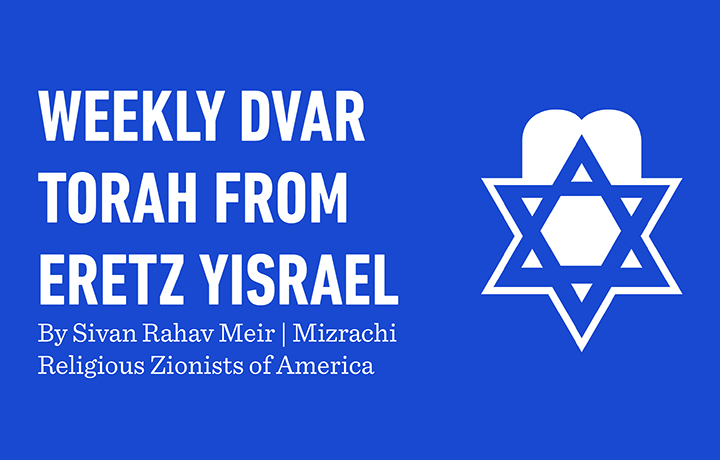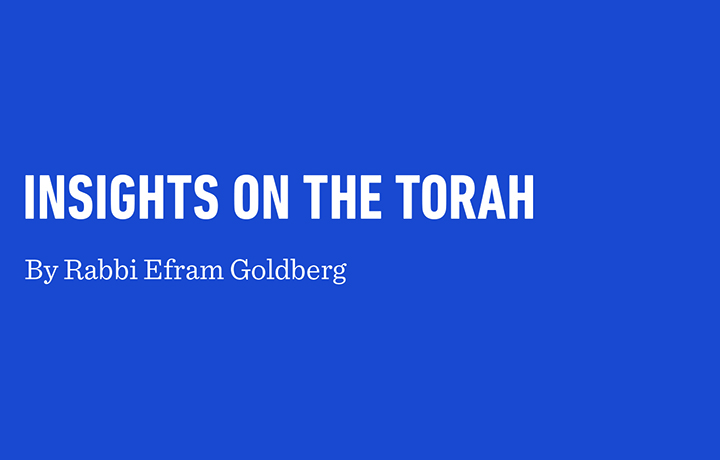Red Ashes, Endless Skies
Religion straddles the line between logic and mystery. We study Hashem’s will and strive to fulfill it, hoping to uncover its inner logic, how it refines our personal lives and elevates the human condition. Yet, no matter how deeply we probe, His ways remain beyond human understanding. His thoughts are not our thoughts, and His paths are not our paths (Yeshaya 55). This holds true not only in His commandments but also in His hidden hand guiding history.
Despite our best efforts at analyzing and trying to decipher Him, Hashem remains distant and unknowable. Religion demands that human inquiry bow before the logic of the Divine.
For this reason, though many of Hashem’s commandments are logical, others defy reason and offer no clear entry point for human logic. Among these non-rational mitzvot, the quintessential example is the Parah Adumah.
This enigmatic ritual involves the slaughter of a perfectly red cow, which is then burned entirely. Its ashes are mixed with fresh, natural spring water to create a purifying solution. This mixture is sprinkled on those who have encountered death, and only through this process can they shed their legal state of tumah (ritual impurity) and reenter the precincts of the Mikdash.
It is no coincidence that the quintessential irrational mitzvah—the chok of Parah Adumah—addresses the halachic condition of tumah, the state brought about by contact with the dead. Death is the ultimate human enigma. We have no response to it and no remedy for it. It stands as an impenetrable boundary beyond which the human imagination cannot venture and which no science will ever fully conquer. Death humbles human power and ridicules human understanding. Only the higher will of the Divine can confront the mystery of death. No human device can soften its finality. It can be transcended only through a ritual that is entirely divine in origin and utterly opaque to human logic. We cannot make sense of it, but we submit to it.
What is true within the narrow legal framework of Parah Adumah is equally true in a broader, metaphorical sense. In our own personal confrontation with death and human limitation, we seek transcendence by forging a bond with the Eternal. It is through our relationship with Hashem that we touch something beyond the limits of our mortality.
Because the red heifer is a portal to the eternal, its laws are deliberately placed in Parshat Chukat, amid the nation’s forty-year journey through the desert, a long and painful stretch of wandering. By this point, we had lost our glow. Once, we were chosen, we stood at Sinai and heard the direct voice of Hashem. The sea split before us, food rained down from the heavens, but our betrayals condemned us to forty years of wandering, silence, and loneliness.
Desert life grew dull and dark. A generation lived with no future, with nothing ahead but an eventual burial beneath the desert sands. At this bleak moment, the laws of Parah Adumah arrive—not as a rational command, but as a Divine gesture, inviting us to reconnect with a logic far above our own. In the heart of darkness, Hashem reminded us that we are part of something larger: a transcendent reality. Though life felt bleak, we discovered that our path was still held by a higher logic, quietly unfolding and anchored in eternity.
This baffling and mysterious law of the Red Heifer restored some of our lost radiance, lifting us from despair by pointing toward something eternal. A Divine logic, far beyond human imagination, opened a fresh channel with Hashem—rekindling truths we once knew and reawakening a bond that had faded but was never severed. Through the laws of Parah Adumah, we once again brushed against eternity.
Over the past two weeks, we have once again brushed against eternity. Our victory over Iran was not merely a stirring military victory—it was a parting of the heavens—literally and figuratively.
This wasn’t just another war against brutal enemies like Hamas or Hezbollah. Iran posed an existential threat and stood on the brink of acquiring nuclear weapons—an arsenal they would not have hesitated to use. We faced, and neutralized, an existential danger. And we did so in a manner that felt almost surreal. Forty years of terror infrastructure were dismantled in just twelve days without harming a single Israeli soldier. Though they still seek our extinction, their capacity has been severely degraded.
Throughout those brief but dramatic days, it felt as if we were brushing up against something larger than ourselves, beyond the reach of human strategy or strength. Our courageous pilots who soared through Iranian skies, and our defenders who shielded Tel Aviv and Haifa, were equipped with something that felt like divine technology—tools to strike missiles from the heavens.
It wasn’t just a war. It felt like a celestial drama. A war in the heavens lifted us into a different dimension—grander and unmistakably touched by the hand of Hashem.
We needed this encounter with eternity—desperately. We too had lost our glow. October 7th wasn’t just a massacre of staggering cruelty—it fractured our story. It didn’t just claim lives; it shook the foundation of our narrative.
This land was divinely promised to us. But that promise, so central to our identity, invites fierce opposition. Our presence here disturbs the world not only politically, but spiritually. For religious people, the opposition to the State of Israel is more than just geopolitical friction. It is something larger. When the Chosen People return to the Holy Land, that return cannot unfold without resistance. As long as history remains unredeemed, opposition will persist. It may be weakened, allies may stand with us, but the rejection of our return, both spiritually and politically, will never fully vanish until redemption is complete.
Our presence in Eretz Yisrael was always imbued with a higher purpose. It was never merely political—it was historical and charged with destiny. October 7th shattered that narrative. That Jews could be so viciously massacred in their own homeland—while celebrating Simchat Torah—was a rupture unlike anything we had experienced since the founding of the State.
We recovered from the surprise attack of October 7 to deliver decisive blows to many of our enemies. But none of those victories carried the awe or clarity of the confrontation with Iran. The battle with Hamas has dragged on for nearly two years, draining us emotionally and exacting a painful toll in lives, injuries, and psychological burden. Our powerful response to Hezbollah was significant, but they remain entrenched in Lebanon, still threatening our northern border. The war with Iran was something else entirely. It was swift. It was decisive. It was beyond imagination. It felt branded by Hashem Himself.
It restored the glow we had lost two years ago. It revived a spirit that had been dulled and wearied by two years of grinding uncertainty. And more than anything, it reminded us that we are part of a much larger story—one that stretches beyond any moment of terror or despair. A story that will not fade and cannot be defeated.
Thousands of years ago, a scattered and wayward people were called back to manifest destiny through laws that evade human logic. This past month, we witnessed a war in the heavens—one that defied human reason and shattered earthly limits. It was our way of reaching toward the eternal, a powerful reminder of the timeless story that binds us across generations. n
arRabbi Moshe Taragin is a rabbi at the hesder Yeshivat Har Etzion/Gush, with YU ordination and an MA in English literature from CUNY. His books include the recent To Be Holy but Human: Reflections Upon My Rebbe, HaRav Yehuda Amital available at mtaraginbooks.com.













